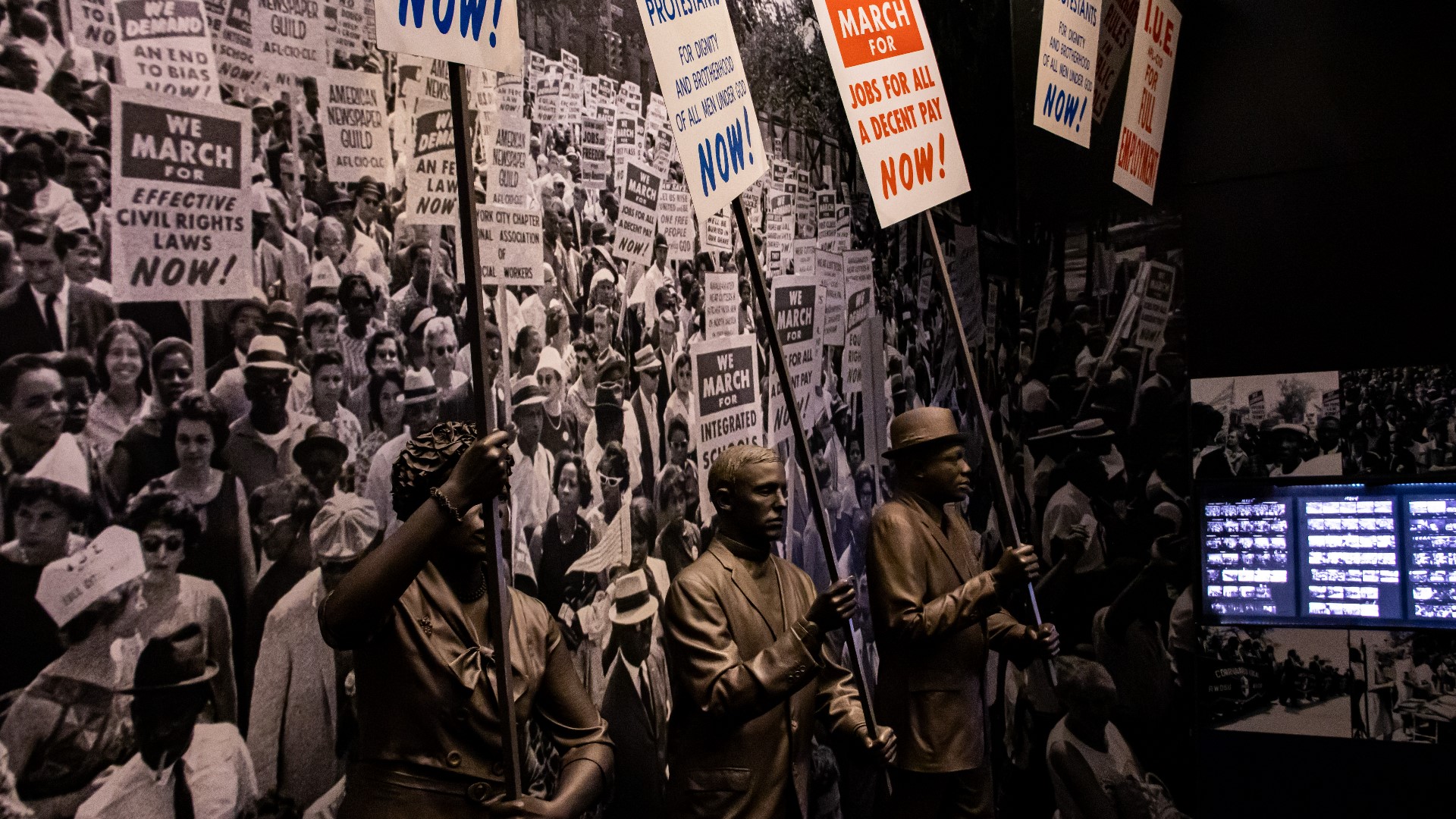MEMPHIS, Tenn. — The second of four discussions focused on bringing together activists, thought leaders, policymakers and surviving families in order to take a look at the historical connections of systemic racial violence will take place on Wednesday at the National Civil Rights Museum.
The museum is referring to these meetings as "covenings," and all four are part of a series called "The Reckoning, The Resolve, The Restoration and The Resilience."
Wednesday's upcoming discussion is entitled “The Resolve: Eliminating Systemic Racism and Toxic Cultures.” It will start at 6:30 p.m.
Panelists include author Dr. De Lacy Davis, professor Howard Henderson, political strategist Amber Sherman, historian Ryan Jones and features former president of the NAACP Memphis Branch as well as former VP of Marketing Development for ALSAC/St. Jude Deidre Malone as moderator of the event.
"This dialogue allows us to acknowledge the longstanding and systemic racism that has plagued our nation and to work towards viable solutions that create a more equitable culture for all of us,” museum president Dr. Russ Wigginton said. “Stemming from the institution of slavery and throughout de jure and de facto segregation, policing, racial profiling and excessive force tactics have been normalized. This has created the most recent escalation of Black and Brown victims of such treatment. We must say more and do more to end this troubling narrative."
At this specific gathering participants are set to discuss the historical context of policing in the country, "from the creation of slave patrols to apprehend runaway enslaved people, the enforcement of Black Codes following the end of the Civil War, the emergence of Jim Crow laws following the ratification of the 14th Amendment, to the modern era of American policing that often employs military tactics to 'maintain peace.'"
The panelists are said to be discussing "how structural racism has influenced toxic cultures that negatively impact law enforcement and produce biased-based policing strategies."
Here is more information from the museum on each of the panelists:
· Dr. De Lacy Davis, a 20-year veteran sergeant who retired from service in East Orange, New Jersey, in 2006, is an activist, author, and community leader who has held the copyright for “What to Do When Stopped by the Police?”, a primer for “The Talk” that Black parents give to their sons to prepare them for when the police may stop them.
· Howard Henderson is a professor of criminal justice and founding director of the Center for Justice Research at Texas Southern University. A Senior Fellow at the Brookings Institution, Howard’s research focuses on structural and cultural predictors of criminal justice system disparities.
· Amber Sherman, a political strategist, activist, and organizer, is a native Memphian and a graduate of Hodges University with a Master of Legal Studies degree, Summa Cum Laude. Her thesis, “Innocent Until Proven Guilty: An Argument for the Unconstitutionality of the U.S. Bail System,” has been studied at law schools and used to draft end money bail legislation in Tennessee.
· Ryan Jones, Interim Director, Interpretation, Collections, and Education, serves as the museum’s historian and curator, validating interpretation and reviewing scholarly content shared by the Museum. He is a dual masters-doctoral candidate in the University of Memphis History Department. He is writing his dissertation on the violence in the Civil Rights Movement in Mississippi and Alabama, focusing specifically on little-known, cold cases that impacted legislation in those states in the mid-1960s.
· The moderator is Deidre Malone, founder of the Memphis PR firm Carter Malone Group. She has previously served as VP of Marketing Development for ALSAC/St. Jude Children’s Research Hospital and Director of Public Relations for St. Jude Children’s Research Hospital. She is a former Shelby County Commissioner and former president of the NAACP Memphis Branch.

